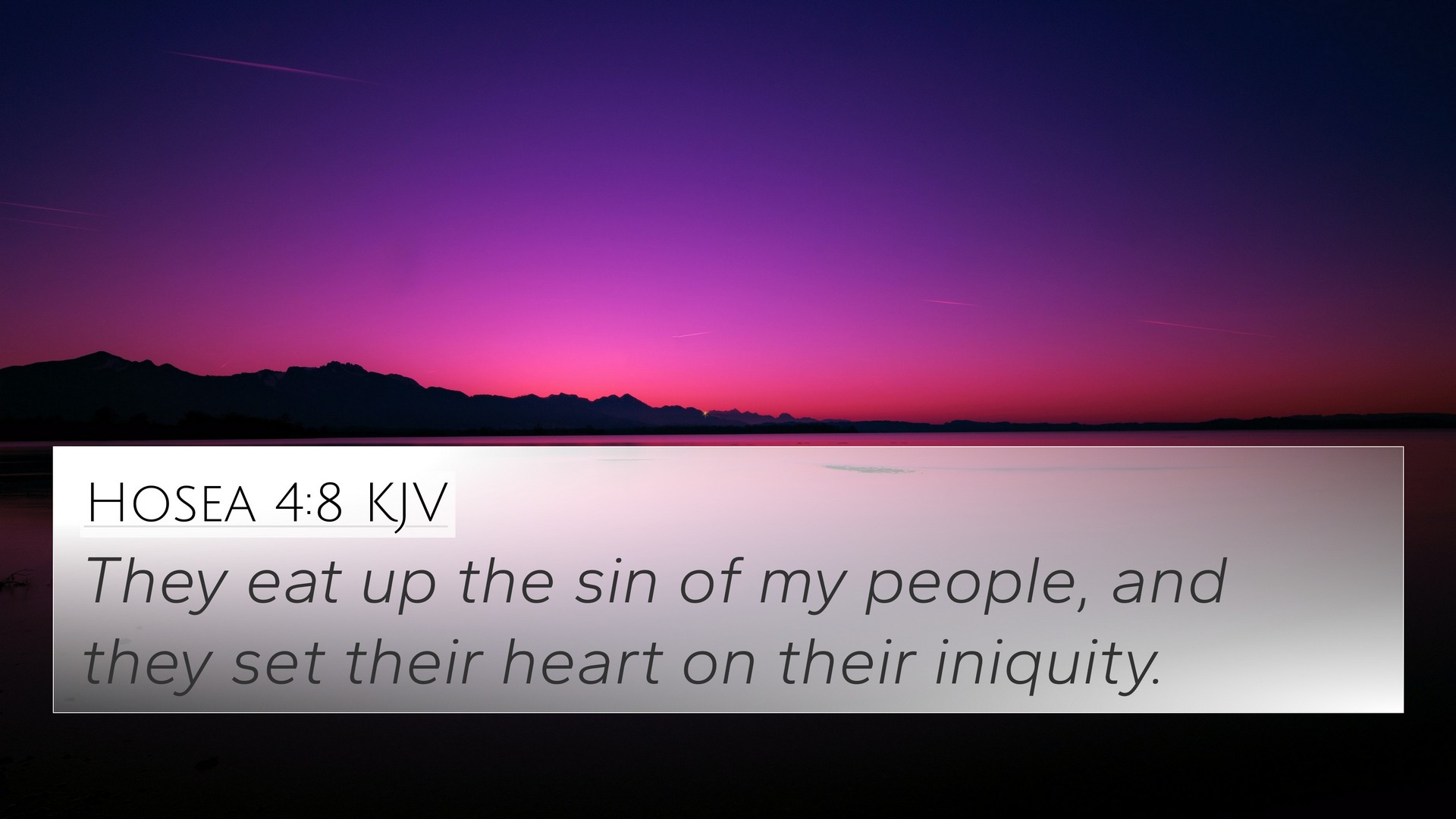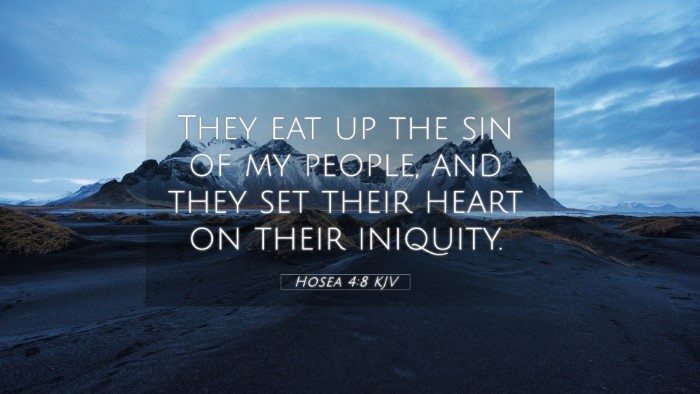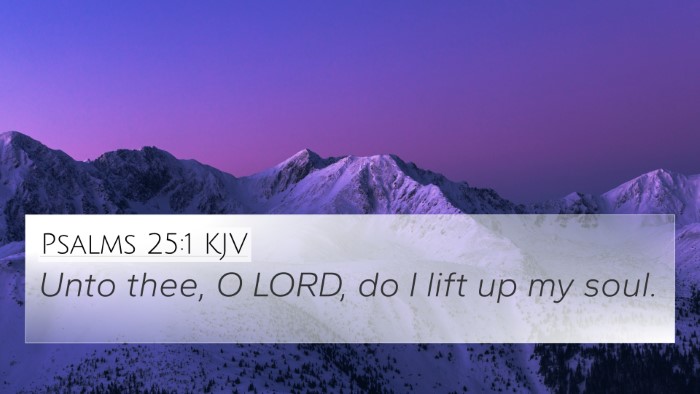Old Testament
Genesis Exodus Leviticus Numbers Deuteronomy Joshua Judges Ruth 1 Samuel 2 Samuel 1 Kings 2 Kings 1 Chronicles 2 Chronicles Ezra Nehemiah Esther Job Psalms Proverbs Ecclesiastes Song of Solomon Isaiah Jeremiah Lamentations Ezekiel Daniel Hosea Joel Amos Obadiah Jonah Micah Nahum Habakkuk Zephaniah Haggai Zechariah MalachiHosea 4:8 Similar Verses
Hosea 4:8 Cross References
They eat up the sin of my people, and they set their heart on their iniquity.
Uncover the Rich Themes and Topics of This Bible Verse
Listed below are the Bible themes associated with Hosea 4:8. We invite you to explore each theme to gain deeper insights into the Scriptures.
Hosea 4:8 Cross Reference Verses
This section features a detailed cross-reference designed to enrich your understanding of the Scriptures. Below, you will find carefully selected verses that echo the themes and teachings related to Hosea 4:8 KJV. Click on any image to explore detailed analyses of related Bible verses and uncover deeper theological insights.
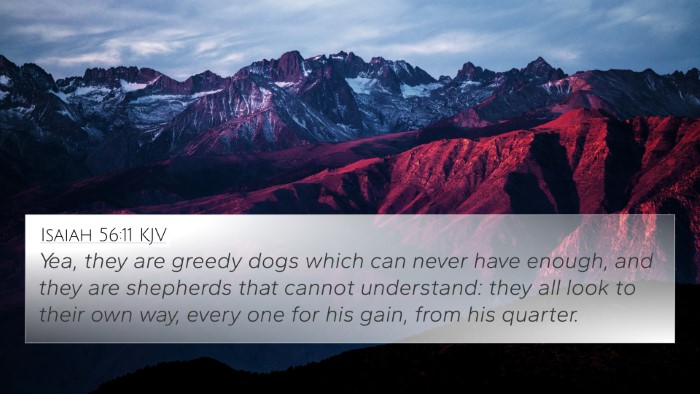
Isaiah 56:11 (KJV) »
Yea, they are greedy dogs which can never have enough, and they are shepherds that cannot understand: they all look to their own way, every one for his gain, from his quarter.
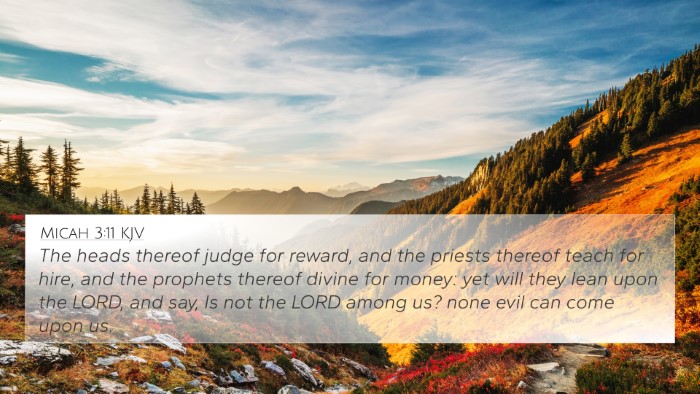
Micah 3:11 (KJV) »
The heads thereof judge for reward, and the priests thereof teach for hire, and the prophets thereof divine for money: yet will they lean upon the LORD, and say, Is not the LORD among us? none evil can come upon us.
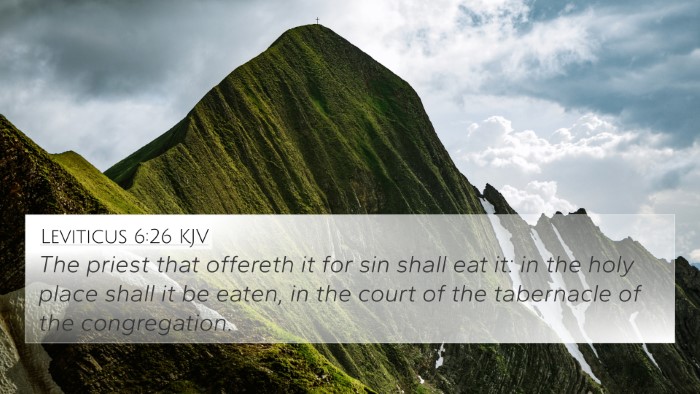
Leviticus 6:26 (KJV) »
The priest that offereth it for sin shall eat it: in the holy place shall it be eaten, in the court of the tabernacle of the congregation.
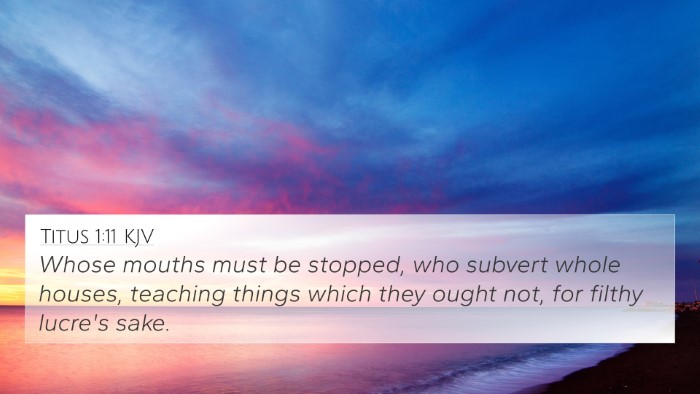
Titus 1:11 (KJV) »
Whose mouths must be stopped, who subvert whole houses, teaching things which they ought not, for filthy lucre's sake.
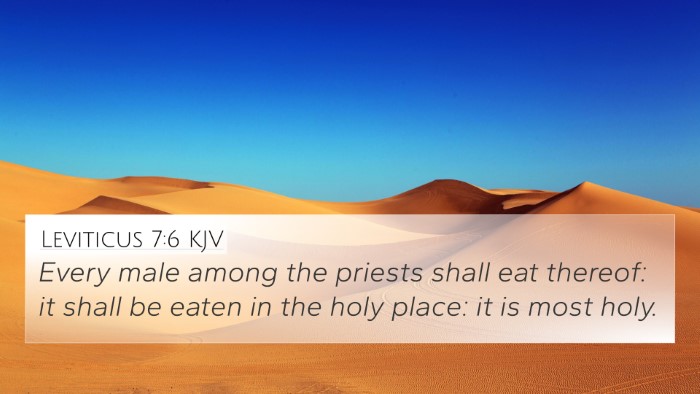
Leviticus 7:6 (KJV) »
Every male among the priests shall eat thereof: it shall be eaten in the holy place: it is most holy.
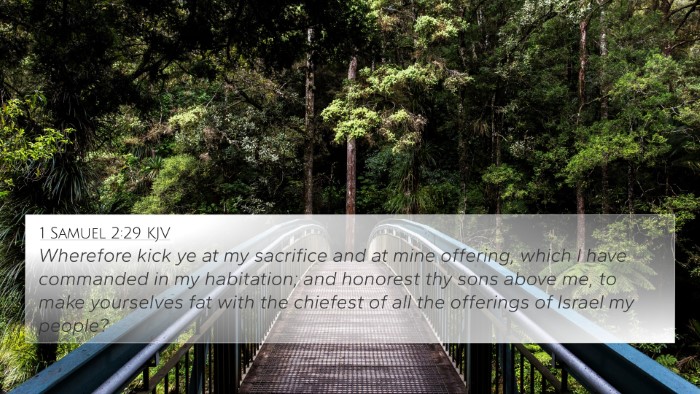
1 Samuel 2:29 (KJV) »
Wherefore kick ye at my sacrifice and at mine offering, which I have commanded in my habitation; and honorest thy sons above me, to make yourselves fat with the chiefest of all the offerings of Israel my people?
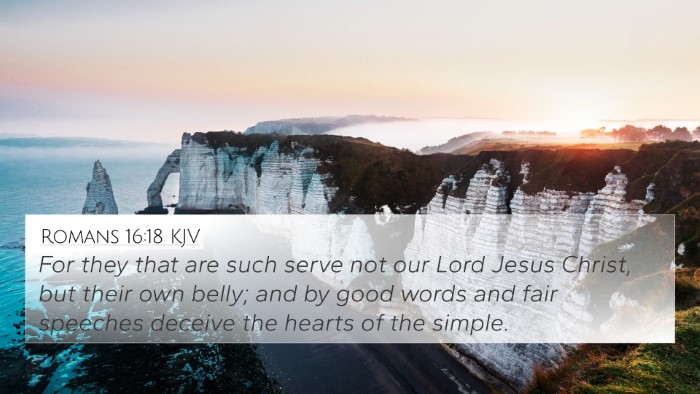
Romans 16:18 (KJV) »
For they that are such serve not our Lord Jesus Christ, but their own belly; and by good words and fair speeches deceive the hearts of the simple.
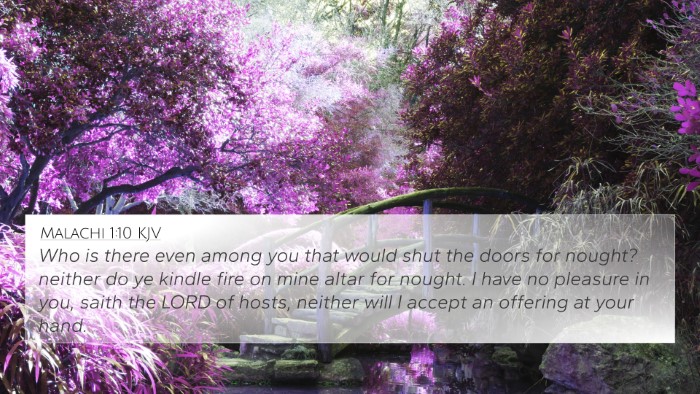
Malachi 1:10 (KJV) »
Who is there even among you that would shut the doors for nought? neither do ye kindle fire on mine altar for nought. I have no pleasure in you, saith the LORD of hosts, neither will I accept an offering at your hand.
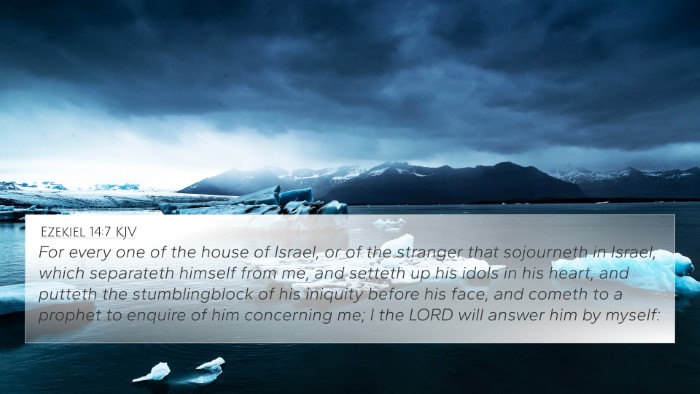
Ezekiel 14:7 (KJV) »
For every one of the house of Israel, or of the stranger that sojourneth in Israel, which separateth himself from me, and setteth up his idols in his heart, and putteth the stumblingblock of his iniquity before his face, and cometh to a prophet to enquire of him concerning me; I the LORD will answer him by myself:
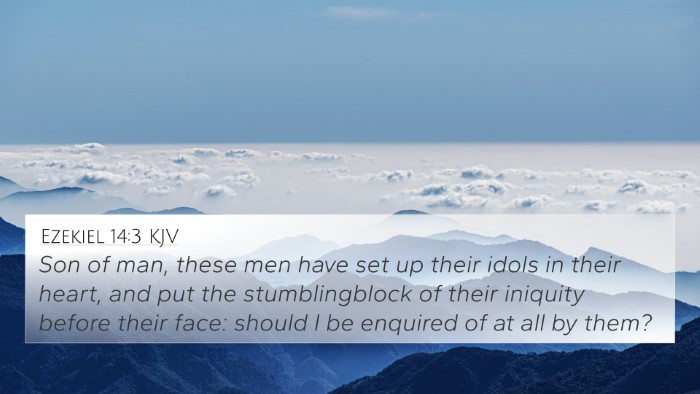
Ezekiel 14:3 (KJV) »
Son of man, these men have set up their idols in their heart, and put the stumblingblock of their iniquity before their face: should I be enquired of at all by them?
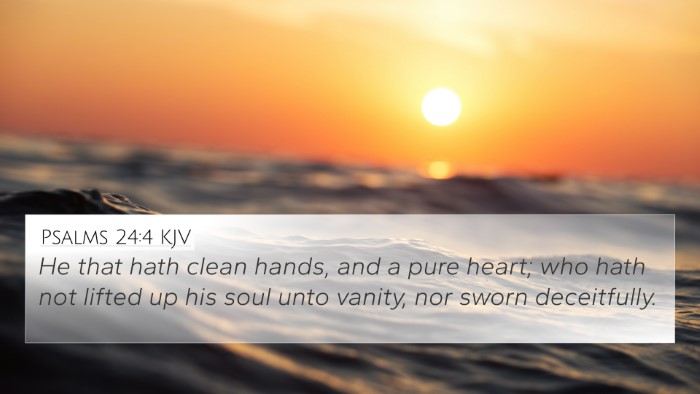
Psalms 24:4 (KJV) »
He that hath clean hands, and a pure heart; who hath not lifted up his soul unto vanity, nor sworn deceitfully.
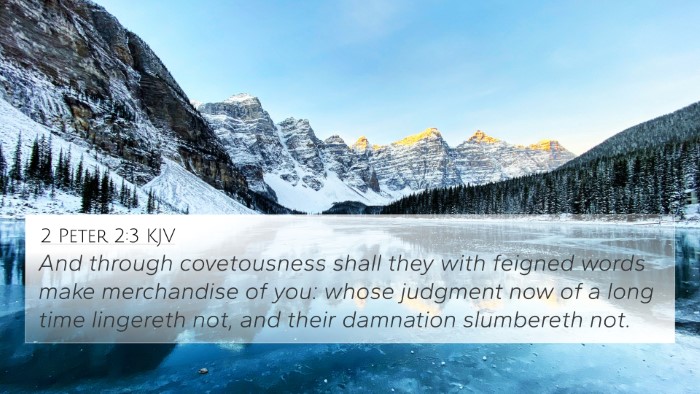
2 Peter 2:3 (KJV) »
And through covetousness shall they with feigned words make merchandise of you: whose judgment now of a long time lingereth not, and their damnation slumbereth not.
Hosea 4:8 Verse Analysis and Similar Verses
Understanding Hosea 4:8
Hosea 4:8 states: "They eat up the sin of my people, and they set their heart on their iniquity." This verse encapsulates a critical indictment of the spiritual leaders and the people of Israel, reflecting their moral corruption and the consequences of their actions. The prophet Hosea uses this vivid imagery to illustrate how the priests are complicit in the sins of the nation, highlighting the deeper theological implications of sin and its impact on community and worship.
Verse Analysis
This verse serves as a pivotal piece in the narrative of Hosea, illustrating the interconnectedness of personal sin and communal responsibility. The priests are depicted as not merely passive observers but active participants endorsing and perpetuating sin. The phrase "they eat up the sin of my people" signifies their greedy exploitation of the people's transgressions for personal gain, leading to spiritual deterioration.
Commentary Insights
- Matthew Henry: In his commentary, Henry reflects on how the priests take advantage of the people's sins, profiting from their iniquities instead of guiding them towards repentance. He asserts that this misrepresentation of God leads to a corrupted form of worship.
- Albert Barnes: Barnes emphasizes the seriousness of the situation by noting that the priests' actions directly lead to their people's downfall. Their hunger for sin instead of righteousness demonstrates a complete failure of spiritual leadership.
- Adam Clarke: Clarke discusses the notion of "setting their heart on iniquity," suggesting that the priests were not only indulging in sin but actively promoting it among the people, solidifying a cycle of disobedience within society.
Thematic Connections
Analyzing Hosea 4:8 reveals multiple themes found throughout Scripture. Here, we observe the significant connections between sin, leadership, and community. Various Bible verses resonate with this theme, reinforcing the notion that spiritual leaders are held accountable for guiding their followers toward righteousness.
Bible Cross References
- Malachi 2:8 - "But you have turned from the way and by your teaching have caused many to stumble..."
- Jeremiah 23:1 - "Woe to the shepherds who are destroying and scattering the sheep of my pasture!"
- Ezekiel 34:2 - "Son of man, prophesy against the shepherds of Israel; prophesy and say to them..."
- Isaiah 56:10 - "Israel’s watchmen are blind; they all lack knowledge..."
- 1 Timothy 5:20 - "Those who are sinning rebuke in the presence of all, that the rest also may fear."
- James 3:1 - "Not many of you should become teachers, my brothers, for you know that we who teach will be judged with greater strictness."
- Matthew 23:1-4 - The condemnation of the Pharisees and their hypocrisy in teaching yet failing to adhere to God's law.
Connecting Bible Verses
The connections between Hosea 4:8 and these verses illustrate a broader biblical principle: the responsibilities of leaders within the faith community. The thematic parallels highlight how one's sin not only affects the individual but reverberates through the entire congregation. The interconnectedness among these verses aids in understanding how the Old Testament prophets addressed issues similar to those faced by the early church.
Applications and Reflections
For modern readers, Hosea 4:8 serves as a stark reminder of the role of spiritual leaders today. The Bible verse calls into question how church leaders behave in their positions of influence and the potential consequences of their actions. church leadership must prioritize the spiritual well-being of their community, steering clear of indulgence in sin that leads to systemic failure.
Tools for Understanding Biblical Cross-References
To explore the complexities of biblical texts and their connections, various tools can enhance your cross-referencing studies. A Bible concordance serves as an invaluable resource for mapping relevant verses. Moreover, engaging in comprehensive Bible cross-reference materials can facilitate a deeper understanding of Scripture.
Cross-Referencing Bible Study Methods
Utilizing a diligent approach in cross-referencing can unravel rich insights from interconnected Scriptures. By examining verses that relate both thematically and contextually, one can appreciate the depth of biblical revelation. Methods like thematic studies or detailed comparisons of parallel passages offer clarity on how to draw insightful connections among the texts.
Conclusion
Hosea 4:8 encapsulates a timeless warning regarding the symbiotic relationship between sin and leadership. Through careful cross-reference analyses, believers can discern the ongoing relevance of these themes in their faith journeys. Moreover, this verse invites both leaders and followers to reflect on their responsibilities within the Body of Christ.
